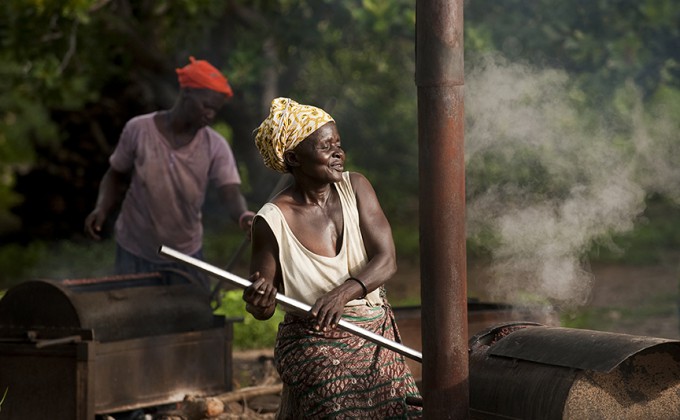
Burkina Faso, Mali and Niger Burkina Faso: Sissili and Ziro Provinces, Centre-Ouest Region Mali: Towns of Zegoua, Siby, Ouolodo and Selefougou Niger: Tilabery and Dosso

September 2009 to August 2013

75,000 people

Burkina Faso:
-Union des Groupements de Productrices de Produits Karité Provinces of Sissili and Ziro (UGPPK/S-Z)
Mali:
-Coopérative des Productrices de Karité of Siby (COOPROKASI)
- Association Conseil pour le Développement (ACOD)
Niger:
- Fédération Nigérienne des Productrices de Karité (FNPK BOULANGA)

Can $ 1,007,000: $
- 440,000 provided by MRI $
- 567,000 provided by CECI
 © Eric St-Pierre
© Eric St-Pierre
Our cooperative efforts have helped increase the incomes of tens of thousands of women members of partner producer organizations and have made a noticeable difference in the living conditions of thousands of women in our target areas. With the help of many volunteers and in collaboration with numerous organizations, we have strengthened the capacities of partners by training women in production, management, marketing and consensus building. We are now working to encourage sustainability throughout the value chain, proper management of agro-forestry resources, development of carbon-neutral production techniques, and increases in sales and exports. Together, these operations are making a significant contribution to the economic empowerment of African women who are all too often economically marginalized.
With financial support from Quebec’s Ministère des Relations Internationales (MRI), we launched a new, environmentally friendly social economy project in Burkina Faso in 2010. While shea production by women’s cooperatives has risen dramatically in recent years, such production requires a relatively high consumption of firewood and water and produces plant debris bi-products, and so has presented new environmental challenges. In low concentrations, the plant residues are harmless, but as production increases, women’s cooperatives are faced with a new environmental management problem. Pressure exerted on natural resources (water and wood) may also become critical in the Sahelian environment. Given that most of these new social businesses project growth in their production to respond to rising demands, medium- and long-term measures must be taken to ensure sustainability of this socio-economic development by perfecting more ecological production methods.
We are currently taking up this challenge in partnership with a major social business, the UGPPK, a cooperative union that brings together more than 3,000 women shea producers in Burkina Faso. The goal is to set up a “green production” facility using “carbon neutral” technology. The project’s major components are: proper management of natural resources, composting plant debris, grey water recycling, and increased use of renewable energies such as biogas and solar energy. Training producers and optimizing the production chain are also part of the initiative and aim to reduce intensive labor while increasing productivity and energy efficiency.